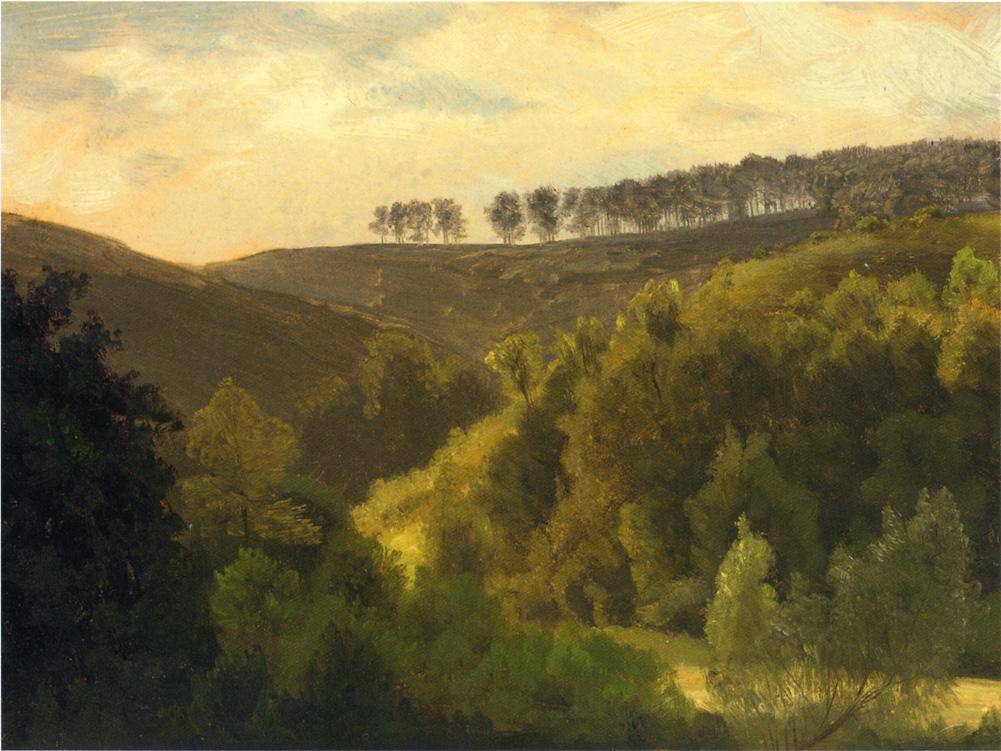
I found this entry several weeks ago in “The New England Farmer; A Monthly Journal Devoted to Agriculture, Horticulture, and their Kindred Arts and Sciences;” 1855. I keep returning to it, imagining the benefits of this agricultural lifestyle – and time for thought in the fields. I’m sure I’m romanticizing it a bit, but trading in my morning commute with irate drivers and accidents for time out in the fields reflecting or sitting in front of a blazing fire doesn’t seem like such a bad trade off.
For the New England Farmer.
TIME FOR THOUGHT IN THE FIELDS
Friend Brown :—“A Reader,” who criticises the articles in the Monthly Farmer, makes some remarks on the following sentence in Mr. Fay’s Essex County address: “He who delves and digs the earth from morning until night, has little time and less inclination for thought.” I have been happy to agree with him in most of his remarks, but do not in this. Cannot a man think while planting, hoeing, and harvesting his crops? Think ye the only place for deep thought is in the office of the lawyer, doctor, or office of the priest. Who that has one spark of animation left when he goes into his fields, with the free breath of heaven upon his cheeks, and standing upon soil which he calls his own, cannot think, and think deeply, too! I assure you it is not I.
“A Reader” says, “the advantages which the farmer enjoys for study and reflection, and his opportunities for profiting by the changes of seasons and the successive beauties which the rolling year presents for his admiration and improvement, are generally dwelt upon by agricultural orators in poetic ecstacies, (where is a better place to make poetry than in the field, on a pleasant summer morning?) that are but poorly realized by him who sits down in a warm room to study, after a day spent in the woods, with the thermometer pointing at zero; or by him who attempts to admire the glories of sunrise, after mowing long enough to be thinking of breakfast, or of his feet and legs, that are sopping wet with the chill dews of a summer morning.” Now I have some experience in this matter, for I carry on my farm of about ninety acres, without the help of one hand, so much as three months in a year, and have been out teaming this winter with the thermometer pointing thirty degrees below zero, and had ample time for thought and consideration, and a grand time for study by a good fire when I got home. As to the glories of sunrise, no one can beat me in the admiration of that ; and as to thinking of breakfast up here in Vermont, (except some of the very slack ones,) we are enjoying the glories of sunrise so much, even while mowing, that we are hardly ready to go when the summons comes; we have a way, also, to fix our feet and legs, so that we suffer no more from the chill dews (if I may call them so,) than if we remained in the house. We do not have to delve so but that we can look around upon nature and up to nature’s God. If our friend “Reader” had said the farmer has less inclination to communicate his thoughts, I should probably agree with him.
Now, friend Brown, will you permit me to quote from an Essex address, by Hon. E. Everett, as in more accordance with my views. “The reflecting mind, it is true, beholds traces of a higher wisdom and goodness in every step of every walk of life; but the husbandman, who drops a seemingly lifeless seed into the cold, damp earth, there in a great part to decay—who sees the vital germ in a few days pierce the clod, rise into the air, drink the sun’s rays and the dews of heaven, shoot upwards and expand, array itself in glories beyond the royal vesture of Solomon, extract from the same common earth and a thousand varieties of the green of the leaf-the rainbow hues of the petals – juicy or the solid substance of the fruit, which is to form the food for man and his dependent animals, I say the intelligent husbandman who beholds this, seems to step behind the veil which conceals the mysteries of creative power, and sit down (if I may so speak,) in the laboratory of Omnipotence.”
Now, Mr. Editor, I have endeavored to make this as short as possible, and yet I have but just began ; but I will ask one or two questions, and then stop. Cannot a farmer exercise his thoughts on various subjects, even when at work? And if he reads, will he not have inclination to criticise, compare, and come to conclusions? I think he will, and in this find rational and rapid improvement.
W. S. South, Woodstock, Vt., Feb., 1855.
Your Grandpa Mathews recognized value in working the land, or just being out in it. I believe that was his true “passion.” And we can hear (and almost see) the results of Beethoven’s time spent in the fields in his 6th Symphony (the Pastoral Symphony)…
I believe it’s something sorely missing in modern day life.